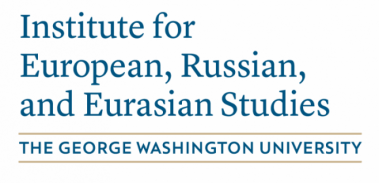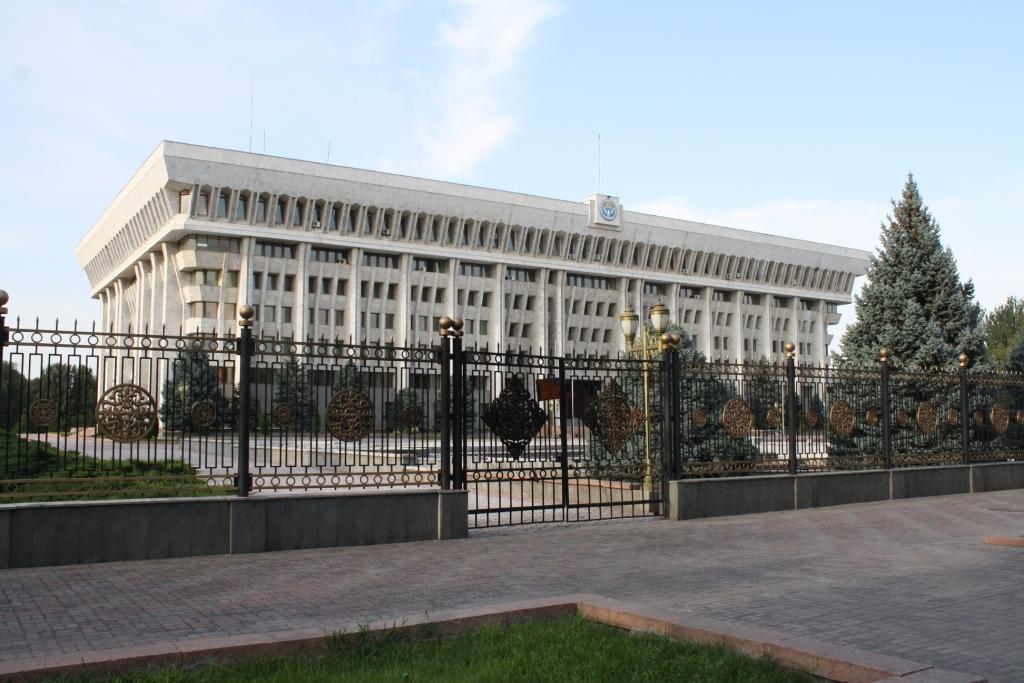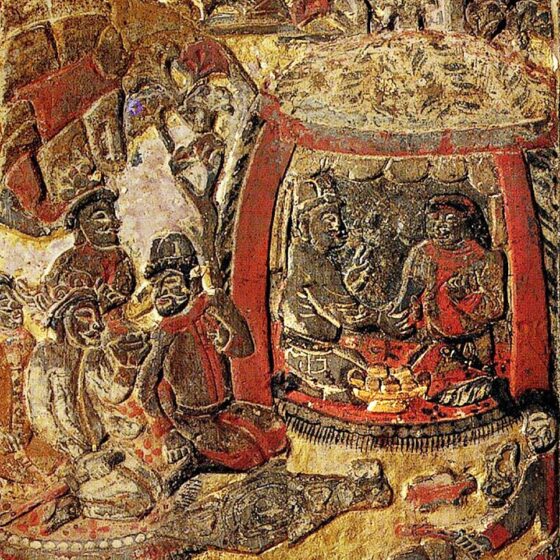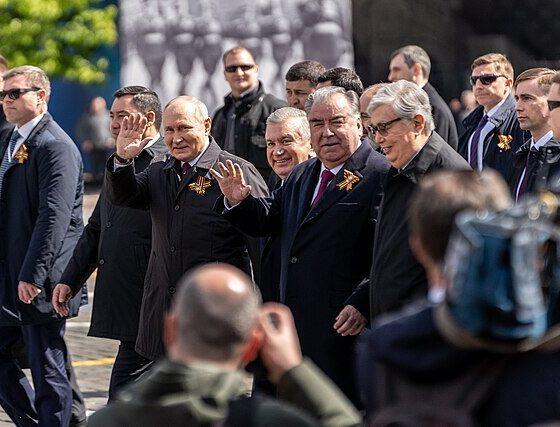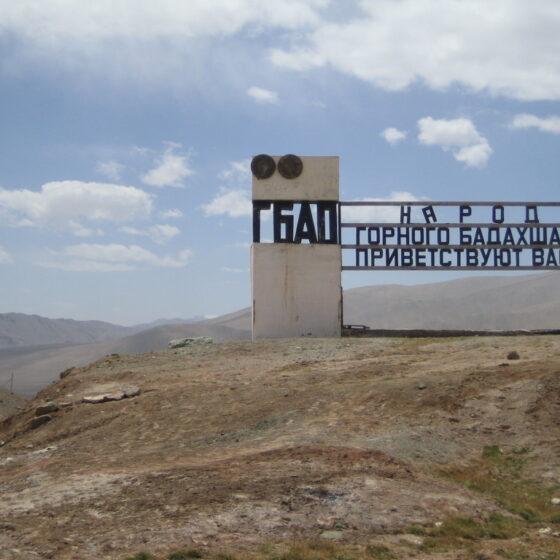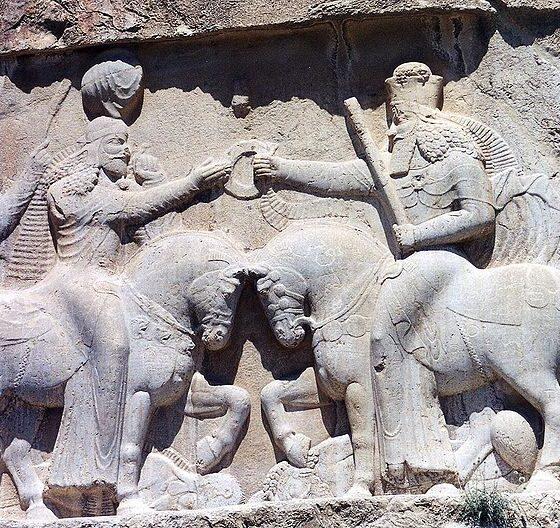Получив благословение Сената США, госпожа Шила Гуолтни готовится начать свою посольскую карьеру в весьма затруднительное время в весьма неудобном месте – в Кыргызстане. Затруднения для нового посла появились в конце июля, когда две страны обменялись «любезностями»: Госдепартамент вручил награду «Защитник прав человека» Азимжану Аскарову, приговоренному в Кыргызстане на пожизненное заключение, а Правительство Кыргызстана, в протест такому жесту, денонсировало ключевое соглашение между двумя странами от 1993 года, облегчавшее оказание Соединенными Штатами разной помощи Кыргызстану. Многие назвали такой ответ правительства Кыргызстана чрезмерным и неоправданным, однако остается непонятным, что же все-таки подтолкнуло Бишкек на столь резкий шаг. Поиск ответов (а их, вероятнее всего, множество) на этот вопрос будет важной первой задачей для нового посла.
Совершенно точно и определенно ответить на данный вопрос пока не выглядит возможным. Но возможно рассуждать на уровне предположений и наблюдений о совокупности трех предпосылок, или оснований на трех уровнях, такому шагу официального Бишкека. Во-первых, он отражает определенный внешнеполитический характер, или характерное поведение, Бишкека в последние несколько лет. Во-вторых, он является очередной частицей более широкого геополитического разлома последнего времени. И в-третьих, он является своего рода симптомом развития «теорий заговора» – а проще говоря, анти-американизма – в последнее время в пост-советском, и особенно кыргызстанском, пространствах.
Для начала, напомним суть дела. Одним из своих ежегодных призеров по продвижению прав человека Госдепартамент США выбрал Азимжана Аскарова, которого власти Кыргызстана охарактеризовали как приговоренного преступника, организовавшего убийство в дни ошских событий 2010 года. Дело Аскарова является одной из наиболее часто поднимаемых вопросов к руководству Кыргызстана, так как многие обозреватели, правозащитники и юристы обеспокоены как самим процессом, так и приговором, и считают это дело показателем всех проблем в правосудии в Кыргызстане. В ответ на новость о такой награде Аскарову, Министерство иностранных дел Кыргызстана опубликовало очень резкое, развернутое протестное заявление. Но посчитав это недостаточным, Правительство Кыргызстана на следующий день объявило о намерении в одностороннем порядке денонсировать важное соглашение от 1993 года, что оно вскоре и сделало. Когда некоторые полагали, что такой шаг мог быть ошибкой чрезмерно активного свеже-назначенного Премьер-министра Сариева, сам Президент Атамбаев подтвердил правильность такого шага через несколько дней.
Трудно сказать, как правильнее было бы Бишкеку реагировать на неприятный для него жест Вашингтона. Есть много вариантов возможных реакций в таких случаях, среди которых один из наиболее частых – простое игнорирование, то есть, не реагировать никак. Такая демонстративная и резкая реакция, которую выдал Бишкек, требует объяснений, и в данном случае, три вышеназванных возможных объяснения выглядят уместными.
Первое объяснение: денонсация и громкий протест являются характерным поведением во внешней политике Кыргызстана в последние годы, с приходом новой власти в 2010 году. А именно, присутствие необыкновенно высокой степени эмоциональности в ведении внешней политики. Выступления, заявления и действия в целом ряде ситуаций касались семьи Курманбека Бакиева – беглого бывшего президента. Эмоциональные ноты протеста получали Беларусь, Великобритания, и США. Помимо вопроса Бакиевых, не менее эмоциональными жестами и заявлениями оформлялись дружественные отношения с Россией, Турцией и Казахстаном, не совсем дружные отношения с Узбекистаном. Вольность, с которой руководство Кыргызстана позволяет эмоциям сопровождать внешнюю политику, можно связать с характерной для революционных правительств ментальностью: они оценивают многое именно через призму своей революционности, революционной правоты и легитимности, тогда как адресаты таких жестов, скорее всего, не совсем разделяют такое настроение. На сторонний взгляд, настолько частые эмоциональные выступления могут выглядеть поведением незрелым, инфантильным. Стоит ли охарактеризовать такие эпизоды во внешней политике Кыргызстана с 2010 года революционным инфантилизмом?
В данном случае с протестом против награждения Аскарова, это объяснение напрашивается как по тону протеста – подчеркнуто эмоциональное, длинное заявление – так и по существу: аргумент МИДа (от имени правительства) в основном в том, что данной наградой Госдепартамент США позволил себе усомниться в суверенном правосудии Кыргызстана, рисковал расколоть тот хрупкий межэтнический мир, который правительство Кыргызстана с трудом укрепляет с 2010 года, и решил наградить «не того человека» после того как пять лет назад не менее важной американской награды удостаивалась Роза Отунбаева – лидер пост-революционного Кыргызстана. Денонсация соглашения, на основе которого Кыргызстану в облегченном режиме предоставлялась помощь в разные сферы, включая государственные ведомства, в сопровождении такого письма, наталкивает на мысль именно о революционном инфантилизме.
Во-вторых, такому резкому шагу Кыргызстана, скорее всего, способствовало положение дел в геополитике региона. Одной из первых мыслей, пришедших ко многим после новости о денонсации, была мысль о роли России – мол, Москва, скорее всего, подсказала или подтолкнула Бишкек на такой демарш. На самом деле, буквально такую роль Москва вряд ли сыграла, но знать об этом, если даже такое имело место, невозможно. Однако, в широком смысле Кыргызстан уже некоторое время пребывал в трудном положении выбора: насколько тесно примыкать в союз с Россией и в какой степени оставлять другие направления внешних отношений действенными. Очевидно, что стратегическое партнерство с Россией для Кыргызстана заведомо приоритетно, особенно после закрытия американской базы год назад. Но степень союзничества с Россией встала острым вопросом с момента появления, с одной стороны, украинского кризиса и последовавшего за ним противостояния между Западом и Россией, и с другой стороны, на этом сложном фоне, вопроса о вступлении Кыргызстана в Таможенный – а теперь Евразийский экономический – союз.
На сегодня, можно утверждать, что Кыргызстан определился в пользу (почти) безусловной приверженности российской стороне вопросов. То есть, везде, где для Кыргызстана возникнет ситуация выбора на международной арене между Москвой и другими, выбор Кыргызстана всегда будет в пользу Москвы. Это объясняется многими объективными факторами, хотя нельзя утверждать, что у Бишкека совсем не было другого выбора. Такая «безусловность» дружбы с Москвой может быть проверена в случае с Турцией по вопросу Крыма и крымских татар, но такой неудобный момент выбора может и пройти стороной, к счастью Бишкека. А в случае с ответом Бишкека на награду Госдепартамента США, геополитический момент лишь в том, что Бишкек лишний раз и с особым ударением дал знать, на какой стороне он стоит и с кем он готов порвать отношения.
Третьим возможным объяснением демаршу Бишкека является нечто более сложное, почти психологическое, которое известно, с одной стороны, как «теории заговора», и с другой стороны, как анти-американизм. Хотя эти два понятия не синонимичны, на практике, когда вопрос касается мировой политики, они чаще всего идут как взаимодополняющие явления. Обществу, пропитанному чувством неприятия к Соединенным Штатам, очень легко поддаваться мыслям о том, как американцы реализуют заговор против всего мира, или, по крайней мере, против России и ее друзей. В числе таких мыслей, часто слышны версии о том, как они специально создали ИГИЛ, чтобы расшатать мусульманский мир, затеяли украинский кризис, чтобы поставить Россию на колени, а теперь присудили Аскарову награду, чтобы столкнуть Кыргызстан в нестабильность и хаос.
Анти-американские чувства и страхи о конспирациях в последнее время были очень активны в Кыргызстане. Это касается и личности временного посла США в Бишкеке, Ричарда Майлза, который якобы прислан, чтобы организовать третью революцию (и за которым, очевидно, кыргызские спецслужбы ведут тщательную слежку), и секретного груза в 150 тонн, в котором заподозрили то ли деньги, то ли оружие, но никак не строительный материал, и почти всеобщего троллинга против так называемых «госдеповских грантоедов» (к которым, фактически, можно отнести существенную часть всего госаппарата страны), и многого другого. Вклад сюда сделал и Президент Атамбаев, вольно апеллируя понятием «иностранные агенты» и полагая, что данной наградой США могли подтолкнуть граждан-узбеков Кыргызстана на какие-то акции вплоть до сепаратизма.
Итак, чтобы понять всю подоплеку демарша Кыргызстана, требуется осмысление как минимум данных трех измерений: специфический, эмоциональный подход к внешней политике в пост-2010 Кыргызстане, геополитические реалии на фоне украинского кризиса и ЕАЭС, и общественно-значимый, распространенный анти-американизм, идущий вкупе с «теориями заговора». Во всех трех отношениях Кыргызстан выглядит обособленно в среде других стран Центральной Азии: позиции других четырех стран (и даже Таджикистана в геополитическом отношении) по всем трем пунктам значительно отличаются – они все придерживаются или пребывают в гораздо более умеренной позиции. Стало быть, свеженазначенному послу США – и всем другим, кто к этому причастен – предстоит нелегкая задача найти тот язык, на котором Бишкек может более конструктивно, непредвзято вести сотрудничество. Благо, в Бишкеке все-таки существует понимание того, что для страны важно иметь позитивные отношения не только с Москвой.
“Kyrgyzstan’s Walkout: Emotions, Geopolitics, or Conspiracy?” Emil Dzhuraev
Confirmation of her nomination by the US Senate in hand, Madame Sheila Gwaltney is about to begin her ambassadorial career at a rather difficult time in a rather difficult country – Kyrgyzstan. The most recent complications appeared when in July the two countries got into an exchange: the US State Department awarded Azimjan Askarov, imprisoned for life in Kyrgyzstan, the prize of “Human Rights Defender”, in answer to which the Government of Kyrgyzstan unilaterally scrapped a key 1993 agreement between the two states that facilitated the provision of US aid to Kyrgyzstan. While such reaction from Kyrgyzstan was viewed by many as extreme and unjustified, it remains unclear just what pushed Bishkek to such an edgy move. For the newly approved ambassador, seeking answers – which probably are multiple – to the question will be one of her early tasks.
It looks too early to answer the question with any certainty or precision. What does seem possible, in the order of likelihoods and observations, is to propose the presence of three compounded major reasons – or maybe, three bases – for the given move of the official Bishkek. Namely, firstly, the move reflects the characteristic manner of doing foreign policy by Bishkek in recent years. Secondly, it comes as another piece in the larger geopolitical dynamic that has emerged lately. Thirdly, on a still broader and nebulous level, the move may be a certain symptom of the spreading “conspiracy theories” – which, effectively, is an extension of anti-Americanism – in various parts of the world, in the post-Soviet space, and particularly in Kyrgyzstan.
To recall the subject of the matter, the US State Department selected as one of its recipients of the annually awarded prize “Defender of Human Rights” Azimjan Askarov, a person described by Kyrgyz authorities as a convicted criminal sentenced to life imprisonment for organizing murder during the Osh events of June 2010. In fact, the case of Askarov is one of the most persistently raised issues with the leadership of Kyrgyzstan, because numerous observers, rights defenders and lawyers have had serious concerns for both the trial processes and the sentence. For many, the case of Askarov is the illustration of all the wrongs in Kyrgyzstan’s justice system. Yet, upon hearing the news of the State Department award, the Kyrgyz Ministry of Foreign Affairs put out a highly charged, extended letter of protest. Then, apparently deeming that to be insufficiently strong, the Government of Kyrgyzstan announced the next day that it intended to annul an important bilateral agreement in effect since 1993, and then did so within days. Just when some people wondered whether it was a mistake by the recently appointed over-active Prime Minister Sariyev, President Atambayev himself reaffirmed the government’s action in a public event a few days later.[1]
What would have been a better answer by Bishkek to what came as a displeasing gesture by Washington is hard to say. There are many available options of reacting to such situations, and an obvious one among them is simple disregard. The sort of extreme reaction that Bishkek put out – demonstrative and drastic – requires some explanation. In that vein, the three levels of potential explanation noted above seem worth considering.
One source of Kyrgyzstan’s move is the country’s particular way of doing foreign policy in recent years – more specifically, since the 2010 arrival of a new regime. Kyrgyzstan’s foreign policy process since 2010 has elicited a very notable, unusual degree of emotionality. That could be observed, for example, in a series of statements and actions by Bishkek in connection with the family of Kurmanbek Bakiyev – the runaway former president of the country. Emotion-charged protests and demands over the Bakievs were received in Belarus, the Great Britain, and the United States. Besides the Bakiev matters, comparably emotional tone of communication accompanied Kyrgyzstan’s ties of friendship with Russia, Kazakhstan, and Turkey, and – to the contrary – the not-so-friendly relations with Uzbekistan.
The liberal application of emotions to foreign policy making by the authorities of Kyrgyzstan may be a characteristic of governments that come to power by way of revolutions: they would tend to view things through the prism of their own revolutionary background, from the perspective of revolutionary righteousness and legitimacy. Their counterparts, obviously, cannot be expected to share the same feelings or standards.[2] To an outside observer, such frequent shows of emotion in foreign policy may come across as immature, infantile. May one, on that note, describe Kyrgyzstan’s emotional foreign policy making since 2010 as revolutionary infantilism?
In the given case over the award of Askarov, this explanation of the reaction seems pertinent both for the tone – the very notably emotional, long-winded statement – and for the content: the foreign ministry’s justification of Bishkek’s move (on behalf of the Government) was essentially that the US State Department dared to call into question the judiciary of the sovereign Kyrgyzstan, was close to upending the fragile inter-ethnic peace that Kyrgyzstan’s government had been working hard to install since 2010, and decided to recognize “the wrong person” just four years after a no less important prize was awarded to Roza Otunbaeva – the leader of the revolutionary Kyrgyzstan.[3] These and other remarks elicit a deep disdain over the fact that the United States has failed to recognize Kyrgyzstan (read Kyrgyzstan’s current government) as an equal partner, that it has dared to mix up heroes and villains, and has failed to appreciate the government’s hard work to restore peace. The denunciation of an agreement – on the basis of which Kyrgyzstan has received significant US aid toward many spheres, including many government agencies – accompanied by such a statement, leads one to think precisely of something like a revolutionary infantilism at work.
At another level, such an abrupt move by Kyrgyzstan may have been affected by the geopolitical dynamics taking place in the region. One of the first reactions in online comments to the news of the denunciation of the agreement was that it must have been the advice of Moscow. It is quite unlikely that Moscow could have played such a role so literally, but even if it did, that is not going to be known for sure. But in a broader sense, Kyrgyzstan had indeed been in a difficult situation of choice for over a year: how closely it should be aligning with Russia and how substantive should other directions of foreign relations be. It is well-known that the strategic partnership with Russia is a first priority for Kyrgyzstan, which has become especially undisputed since the closure of the airbase at Manas airport a year ago. But it has been the level of alignment with Russia that became a difficult question when, on the one hand, the Ukraine imploded into its crisis and led to the standoff between the West and Russia, and on the other hand, Kyrgyzstan had to decide on its membership in the Customs Union – and now the Eurasian Economic Union – against that difficult, intense background on the international stage.
Today, it may be admitted quite clearly that Kyrgyzstan has chosen the option of (nearly) unconditional siding with Russia. That is to say, whenever Kyrgyzstan faces a situation of having to choose between Moscow and others on the international stage, it will always go along with Moscow. Such a choice has been dictated by the weight of many objective factors, although it would be too much to say that Kyrgyzstan really had no other choice. The “unconditionality” of Bishkek’s friendship with Moscow may come to be tested should Ankara and Moscow develop serious animosities (for example, over the question of Crimea and Crimean Tatars), given that Ankara also enjoys a special seat of friendship with the current leadership in Bishkek. But possible Ankara-Moscow tensions may bypass Bishkek as well, to its good luck. In the case of Bishkek’s demarche after the US State Department award, the geopolitical moment is in the fact that Bishkek indicated, one more time and with particular pathos, with whom it was friends and with whom it would be prepared to break relations.
The third possible basis for Bishkek’s decision is something a bit more complicated, nebulous, almost psychological, which on the one hand may be called “conspiracy theories” and on the other, anti-Americanism. These two terms are certainly not synonyms, but all too often in practice, whenever they apply to world affairs, the two go as mutually reinforcing twin concepts. Thus, for a society soaked with negative attitudes towards the United States, it is all too easy to succumb to notions that America is conspiring against the whole world, or at least against Russia and its friends. In that vein, one can often come to hear that the Americans themselves set up the Islamic State in order to destabilize the Muslim societies, they cooked up the Ukraine crisis in order to bring Russia down to its knees, and now, they awarded Azimjan Askarov in order to push Kyrgyzstan over the edge into instability and chaos.
Anti-American feelings and fears of some conspiracy going on have been plentiful in Kyrgyzstan recently. They have been about the person of the temporary US envoy in Bishkek, Richard Miles, rumored to have been sent to organize a third revolution here (and who, apparently, has been under close surveillance by the Kyrgyz security agencies); about the mysterious two plane-loads of diplomatic pouch, rumored to have brought either dollars or weapons, or something of the sort, but certainly not construction material; and has involved an omnipresent trolling against the so-called “state department grant-eaters” (which term, incidentally, would have to apply to a sizeable part of the government functionaries), and much more else. Most recently, President Atambayev contributed to this atmosphere, when in an informal press-conference he casually used the term “foreign agents” and suggested that the US, by recognizing Azimjan Askarov with that award, may have wanted to inspire Kyrgyzstan’s Uzbek citizens to all sorts of actions, including separatist claims.
Thus, to make sense of the demarche of Kyrgyzstan, one has to seriously consider the place of at least these three considerations: the particular, emotionally charged foreign policy making in the post-2010 Kyrgyzstan, the geopolitical situation complicated by the crisis in Ukraine and the politicization of the Eurasian Economic Union, and the socially consequential, widespread climate of anti-Americanism which, for the most part, has proceeded hand in hand with conspiracy theories about America playing chess around the world.
In all these three considerations, today’s Kyrgyzstan stands apart from all other Central Asian states – even compared to Tajikistan in terms of its geopolitical hedging vis-à-vis Russia or anti-American moods in the society: all four neighbors stand on somewhat different grounds in terms of these considerations – namely, hold less extreme, more balanced positions. Hence, the new incoming ambassador – and any others whom it concerns – face the difficult challenge of finding the right language and approach to gain Bishkek’s disposition to cooperate constructively and without biases. Thankfully, there is after all some understanding in Bishkek – albeit not yet matched by action – that the country needs friendship not just with Moscow. But that is a different story, to be written in the new pages of Kyrgyz-US relations and of Kyrgyz foreign policy in general.
[1] The president made many remarks pertaining to the subject in “an informal press-conference” on July 27, in the resort town of Cholpon Ata. Coverage of various things he said there is available widely on internet.
[2] Here, one recalls Bishkek’s early reaction to the fall of Yanukovich in Kiev in 2014 – the congratulatory statement that stressed the common experience of Kyrgyzstan and Ukraine in kicking out corrupt regimes. That perspective soon came to be toned down.
[3] In 2011, the US State Department recognized Roza Otunbayeva with its prestigious award “Women of Courage”.
